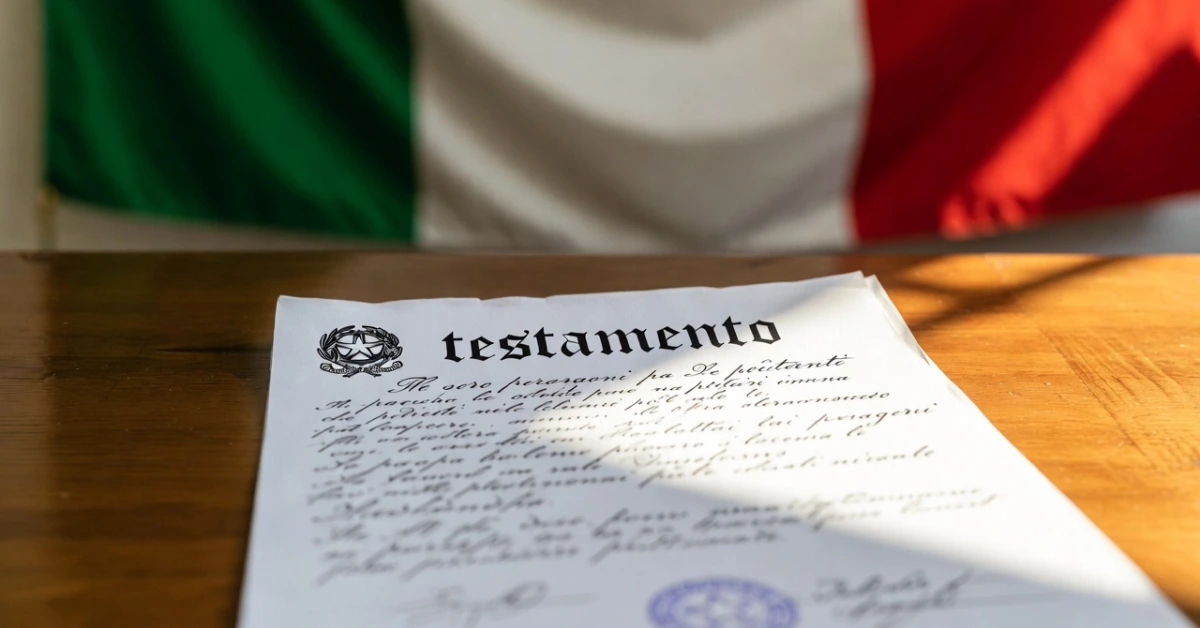The Italian government signed Decree Law No. 36 into law on March 28, 2025, bringing dramatic reform to how Italian citizenship by descent (jure sanguinis) is granted. The changes, which are now in effect, reform a system that has allowed those with even distant Italian heritage to apply for citizenship for so long.
At Accounting Bolla, we are keeping a keen eye on citizenship, residency, and tax law updates. In this article, we summarize the new law, what it means for applicants, and how to prepare especially if you had planned to apply on the grounds of ancestry beyond your grandparents.
Table of Contents
ToggleWhat Changed?
Before March 28, applicants could apply for citizenship on the basis of an unbroken chain from an Italian ancestor, even if the ancestor was a great-grandparent or more remote.
In many cases, it was enough to provide evidence of an ancestor who lived after Italy was unified in 1861. With the 2025 reform, the entitlement is now limited to:
- Applicants with a parent or grandparent born in Italy,
- Or those whose parents had been a resident in Italy for at least two consecutive years prior to the birth of the applicant.
Applicants through great-grandparents or more distant ancestors are no longer being accepted unless the application was entirely submitted before 11:59 p.m. (Rome time) on March 27, 2025.
The Principle of an “Effective Bond”
Among the most significant additions is the requirement to demonstrate an “effective bond” (vincolo effettivo) with the Italian Republic. This means that Italian blood is no longer enough applicants must now show a recent, substantial connection to Italy, such as:
- An Italian-born parent or ancestor,
- Recent residence by a direct ancestor,
- Other evidence of maintained ties to Italy.
| Requirement | Before March 28, 2025 | After March 28, 2025 |
|---|---|---|
| Eligible Ancestor | Any Italian ancestor after 1861 | Only parent or grandparent born in Italy |
| Parental Residence in Italy | Not required | Required if no Italian-born parent/grandparent (2 consecutive years) |
| Proof of “Effective Bond” | Not required | Mandatory — must prove substantial connection to Italy |
| Application Deadline | Rolling basis | Must be submitted before March 28, 2025 (to follow old rules) |
| Accepted Evidence | Affidavits, sworn declarations, and public records | Only official public documents accepted |
Why This Reform Happened
The Italian government cited several reasons for this shift:
- A phenomenal boom in ancestry-based requests, particularly from South America and North America,
- Overburdened municipal and consular offices,
- Concerns over granting citizenship to petitioners with no current or past link to Italy besides ancestry.
Requests in Argentina alone jumped from 20,000 (2023) to 30,000 (2024) within one year. Italy estimated that 60–80 million people worldwide were potentially eligible under the old regulations. The new decree seeks to reduce this range drastically.
Who Can Still Qualify?
You can still qualify for Italian citizenship by descent in 2025 if:
- You have an Italian-born parent or grandparent, or
- Your parent resided in Italy for two years in a row before your birth.
Applications that were already filed with a court, municipality, or consulate prior to March 28 will be adjudicated based on the old regulations. Acquired citizenship will not be taken away.
However, new petitioners must comply with the 2025 scheme regardless of whether the Italian ancestor was born in the 19th or 20th century.

Principal Legal and Practical Implications
The reform was enacted as a decree-law, which took immediate effect. Parliament must now vote to convert it into permanent legislation within 60 days, although the political climate indicates its firm support for retention.
The petitioners must also prepare themselves for stricter documentation needs:
- Sworn statements and affidavits are no longer admissible as the only evidence.
- Only public documents (birth certificates, records of residence, etc.) will be accepted.
Applications missing documentation by the deadline of March 27 are now included under the new law.
At Accounting Bolla, we advise clients to prepare and legalize all documentation ahead of time. With the volume of applications and administrative delays, timing is of the essence.
Next Steps If You Missed the Deadline
If you were planning to apply through a great-grandparent and had not filed your application before March 27, 2025, your path to Italian citizenship by descent may now be closed. Alternative routes are still available:
- Residency visas, i.e., Elective Residence or Digital Nomad visa,
- Naturalization after 10 years of legal residence in Italy,
- Marriage-based citizenship after 2 years of residence (or 3 years without it).
We can assist in evaluating alternative routes that best fit your background, objectives, and timeframe.
How Accounting Bolla Can Assist
Accounting Bolla is an expert in tax, immigration, and legal matters pertaining to Italy. If the 2025 update has affected your plans for citizenship, our staff can:
- Evaluate your eligibility according to the new regulations,
- Help prepare or amend your documents,
- Provide advice on strategic options for residency or citizenship,
- Ensure compliance with tax obligations as they relate to your new legal status.
The intersection of citizenship and taxation is complex especially when cross-border assets or dual tax residency are involved. With our expertise, you’ll be equipped to make informed, compliant decisions from day one.
The Italian citizenship by descent update 2025 is a clear policy shift placing the emphasis on current and demonstrable ties to Italy, rather than simply ancestral heritage. While this closes the door to some, it also brings clarity and consistency to the citizenship process.
If you are uncertain about your next step, need help in auditing your family papers, or are looking at other legal avenues to move to or invest in Italy, Accounting Bolla is here to lead the way with assurance.
Are you interested in this topic? Then take a look at our related articles here, Obtaining Italian citizenship for a spouse, Documents required for Italian citizenship: our guide and Italian Domestic Work Visa: how does it work and how to apply.




